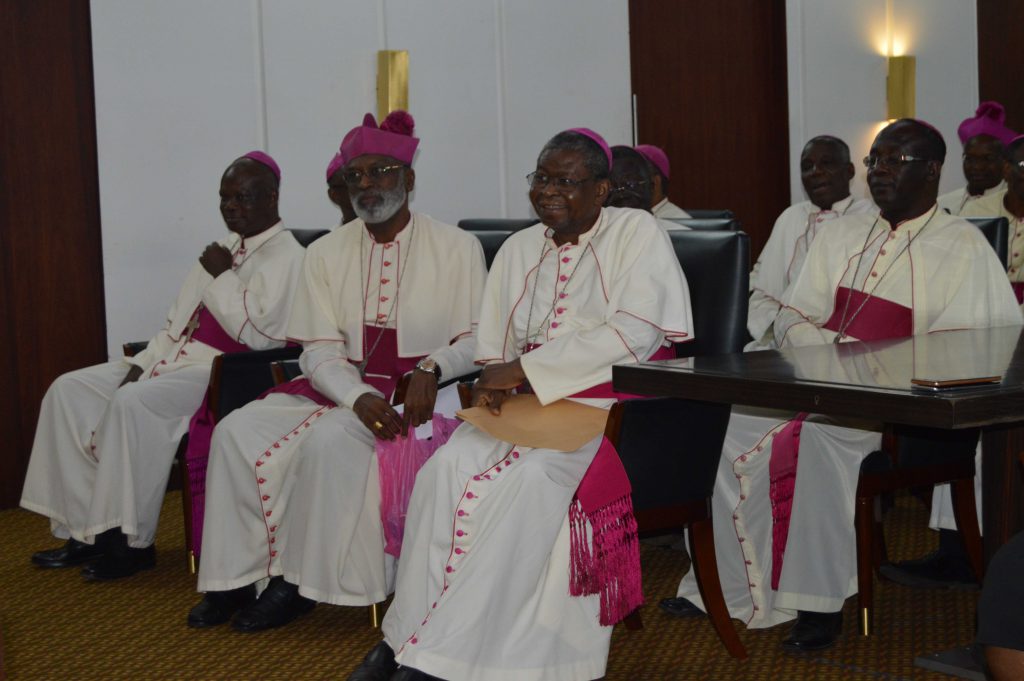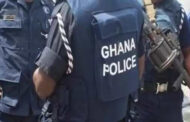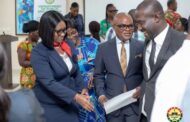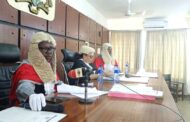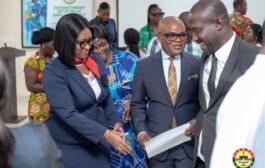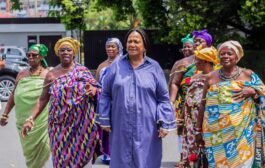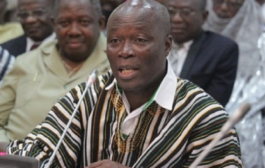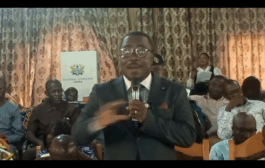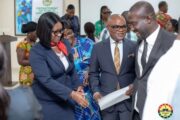The Ghana Catholic Bishops Conference has welcomed the Government position to ease restrictions on church service.
A statement issued and signed by the Metropolitan Archbishop of Tamale and President of the Bishops Conference said on the issue of whether Catholics should resume public Masses or not should be the discretion of the Archbishops and Bishops and on condition that Parishes will be able to fulfill the directives outlined by the appropriate authorities in the country.
The statement said the Church in Ghana desires to prudently manage those risks to create an environment that will minimize the adverse impact of the virus on society.
The following are some recommendations on how Catholic Parishes, Rectorates, Chaplaincies in each Archdiocese and diocese in Ghana might begin to return to public Masses, burials, weddings (with not more than 100 persons), baptisms and devotions, while at the same time observing practices that help to minimize the spread of the virus.
- Dispensation from the Sunday Obligation: Catholics are exempted from attending Mass during the ongoing pandemic until the dispensation is revoked.
a. For personal safety reasons, persons with higher vulnerability to the virus (such as the aged and sick), are strongly encouraged to take advantage of the dispensation and refrain from attending Public Masses.
b. Anyone with any kind of acute symptoms, fever, or recent exposure to an infected person should not attend Mass.
c. Priests should make occasional pastoral visits to those who cannot attend Mass. Visits should be brief and limited to offering Confession and Holy Communion while observing all the safety recommendations stated below.
2. Preparation of Churches and Chapels
a. Churches desirous of opening their premises to their members must disinfect, fumigate, and put in place the requisite logistics needed to guarantee safe opening and operation.
b. Veronica buckets, soap, and disposable towels should be provided at various points of the Church premise.
c. Registration desks should be set up near to the entrance so that after washing the hand’s people register (name and contact) before entering the Church or Chapel.
d. Regular cleaning of communal facilities like washrooms and cleaning of frequently touched surfaces like doorknobs.
e. Designate a holding room for people who will be sick at any time. Allow for regular fumigation and disinfection.
f. Provide adequate ventilation by opening windows and avoid confined Air-conditioned rooms.
g. Form Covid-19 taskforce comprising of members who have healthcare backgrounds.
h. Call 113 or 311 for support to enable swift evacuation in case of any emergencies.
3. Limit Crowd at Gatherings: Public worship gatherings should observe the following density restrictions:
a. Twenty-five percent (25%) attendance with a maximum number of 100 congregants. There should be social distancing- a mandatory one-meter distance.
b. Wearing of face mask is mandatory for all entering the Church (priests, ministers, and congregants)
c. Lines for offertory Collection/Holy Communion should observe one-meter distance as the line progresses, this may require only one line for Holy Communion with no side by side standing.
d. Entry and departure from the worship space should use as many doors as possible to avoid congestion at the doors.
e. Entry and exit doors should be opened widely and bolstered to avoid attendees touching the doors.
f. Priests should use all convenient options to prevent attempts to attend Mass beyond the permitted number of 100 participants and to avoid crowds waiting to gain entry to the church.
4. Behaviors of Those Attending:
Those who attend Masses and other religious services in Churches and Chaplaincies should observe the following:
a. Wash hands under running water provided at a suitable place in the Church Premise and sanitize them before entering the Church and as they exit.
b. Wear a mask, covering the mouth and nose, before entering the Church until after leaving the Church.
c. Avoid shaking hands, hugging, or other close contacts with individuals.
d. Avoid singing in groups
2. e. No sharing of personal items.
f. No crowd dancing or waving of handkerchiefs during services.
g. All equipment such as microphone must be sanitized before being passed on to the next user.
5. Liturgical Practices to be Observed by Priests and Ministers: The following practices should be employed by Priests and Ministers.
a. Bishops should permit priests to binate or urinate in a day.
b. Duration of Sunday Masses should be no more than 1hour to limit exposure time between persons.
c. In places where there will be several Masses to be celebrated by different priests, the kissing of the altar, and the signing of the lectionary should be suspended.
d. Priests and Ministers must refrain from the sharing of public address systems, hymnals, etc.
e. Priests and Ministers should wear masks during the celebration of Mass.
f. Discontinue the carrying of the Book of the Gospels during the procession.
g. Refrain from using the censer (thurible).
h. Lectors should sanitize their hands before the readings.
i. Discontinue the placement of holy water in entry fonts.
j. The practice of the offertory procession should be suspended and the elements of bread and wine should be left on the altar.
k. Holy Communion is to be received in the palm, avoiding skin to skin contact between minister and communicant.
l. The Minister or Extraordinary Minister must sanitize his or her hands before and after the distribution of Holy Communion. If they do accidentally touch a communicant’s hand, the minister should stop and sanitize the hand before moving on to the next communicant.
m. Hands should always be re-sanitized after touching or removing the face mask.
n. Priests should keep the number of Mass servers and other liturgical Ministers to the minimum required to effectively celebrate the Liturgy.
o. Congregational singing should be suspended or be minimal enough to meet the time parameters for Mass.
p. Ensure proper sanitizing of sacred vessels after each Mass.
q. Wherever possible, continue to Livestream Masses so that those who opt not to attend in person can still participate online.
The above guidelines for Sunday Mass should be adapted for daily Masses.
5. Guidelines for Adoration:
a. While Churches should be open outside of service times for private prayer, the number at any one time should be limited to 100 and the social distancing protocol is to be observed (This does not apply to adoration chapels but main Churches only).
b. All other protocols stated above are to be observed.
6. Guidelines for the Sacrament of Reconciliation:
The following practices should be employed by Confessors:
a. Ensure a minimum distance of one-meter between confessor and penitent.
b. Where applicable screens impervious to droplet transmission should be used.
c. Arrangements for reconciliation should avoid the need for the penitent to have to touch door handles or other surfaces.
d. Confessors and penitents should be encouraged to wear a mask over the mouth and nose.
Source: Mybrytfmonline/Kofi Atakora



